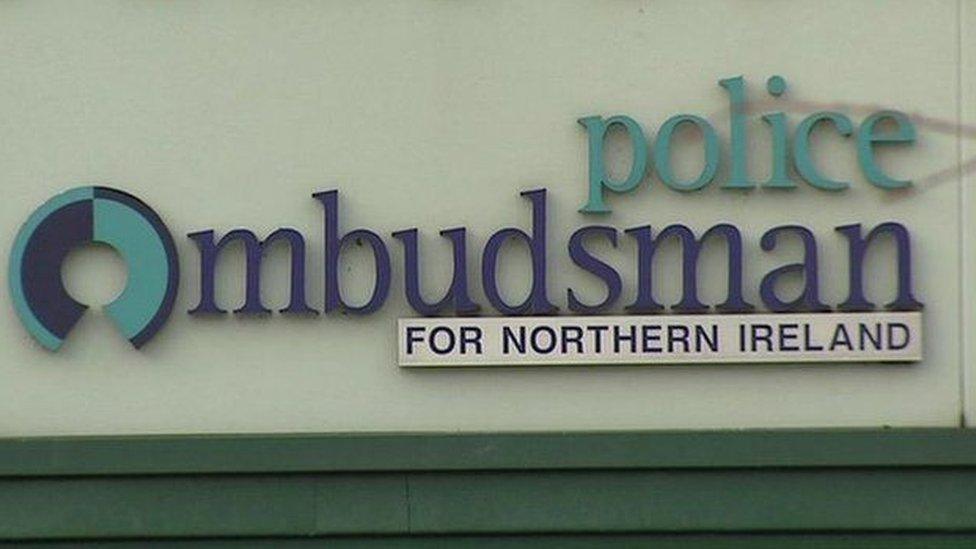Troubles legacy plan 'lopsided' says Police Federation
- Published
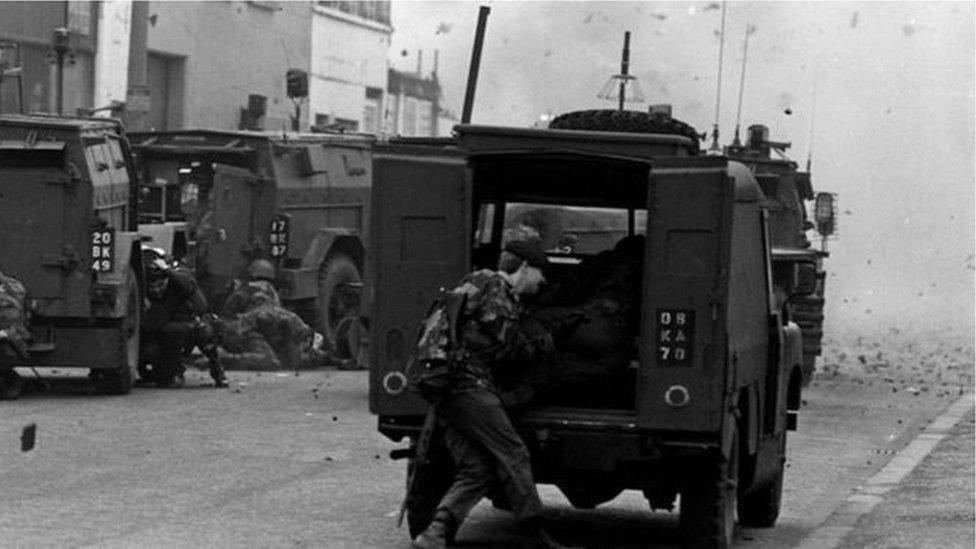
A public consultation on how to deal with the past ends on Friday
Government plans for dealing with the legacy of the NI Troubles have been rejected by a body representing thousands of police officers.
A public consultation on how to deal with the past ends at 17:00 BST on Friday 5 October.
The Police Federation says its members and their families feel abandoned and called for the "ludicrous" proposals to be scrapped.
But the PSNI has largely supported the legacy mechanisms.
DUP leader Arlene Foster has also expressed her concern that the plans "will not meet the objective of properly addressing the legacy of Northern Ireland's past".
The Police Federation says current and proposed new mechanisms for dealing with the past discriminate against police officers.
Chairman Mark Lindsay said: "This is lopsided, one-sided and massively unfair on the wider police family.
"The words 'terrorist' and 'murder' do not appear in the government consultation, and that speaks to a lack of objectivity and imbalance."
The federation describes the proposals as an attempt to equate terrorists with police officers and says this is "morally wrong".
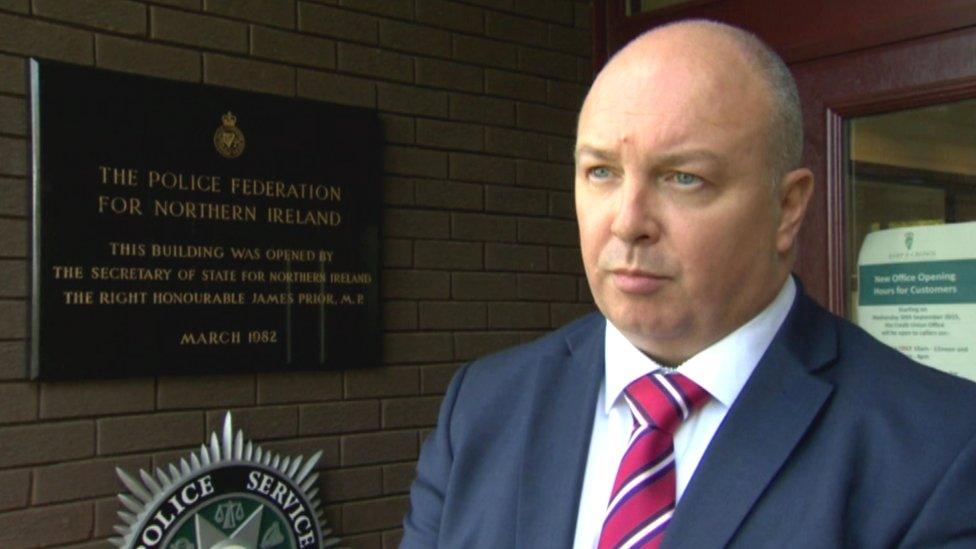
Mark Lindsay said reform of the police ombudsman's office is essential

What is planned?
A Historical Investigations Unit - separate from the PSNI - which would examine about 1,700 Troubles-related deaths and aim to complete its work in five years.
An Independent Commission on Information Retrieval which would only look for information if asked to do so by families.
An Oral History Archive which would collect recorded memories and stories about the Troubles in one place.

'Parallel police service'
In its submission to the consultation, the Police Federation rejects all of the proposals and draft legislation for dealing with the past.
On the proposed Historical Investigations Unit, the federation says it "completely opposes the creation of a parallel police service".
It adds: "It is our position that the PSNI, suitably resourced, should investigate all murders, regardless of date, with normal criminal justice practices and offences fixed in law."
The federation says plans for a commission to provide families with information about deaths of their loved ones are flawed because information given may not be used to prosecute those responsible for killings and other serious crimes.
"The storytelling approach simply detracts from criminal justice," its submission states.
'Propaganda tool'
The Police Federation says the proposal discriminates against police officers because they would be unable to contribute their stories due to legal restrictions, including the Official Secrets Act.
"As a result, we firmly believe that this body will become little more than a vehicle used by former terrorists to provide biased and often false and malicious accounts of historical incidents," it adds.
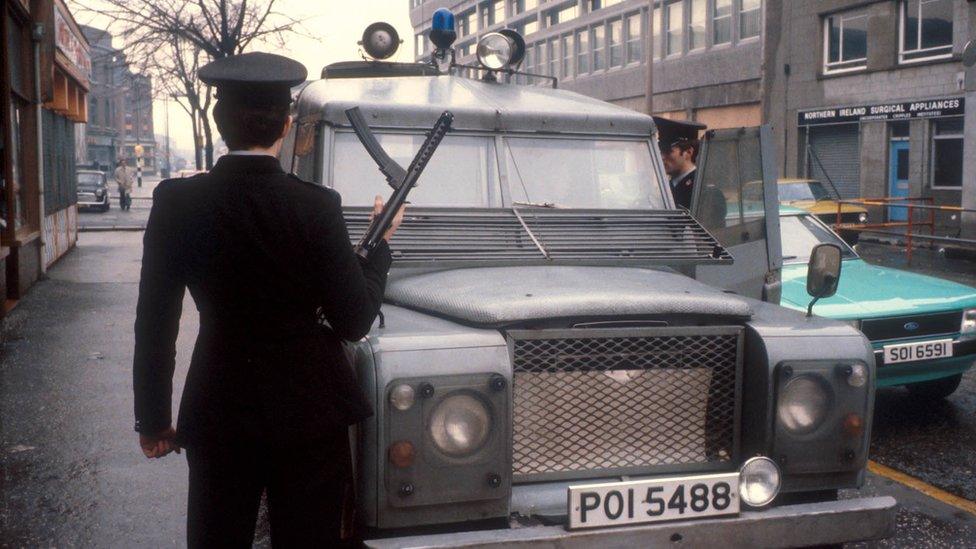
A proposed Historical Investigations Unit would examine about 1,700 Troubles-related deaths
It says the proposed Oral History Archive "risks being a propaganda tool and platform for people who refuse to assist in criminal investigations".
The federation also sets out its opposition to any amnesty or statute of limitations.
'Heavily biased'
"We have said it before, and say it again, that we do not, and never will, condone law-breaking," explains Mark Lindsay.
"There can be no exceptions. If the evidence is there, then the wrong-doers should be brought to justice.
"We are against amnesties for any group and that includes police and military personnel."
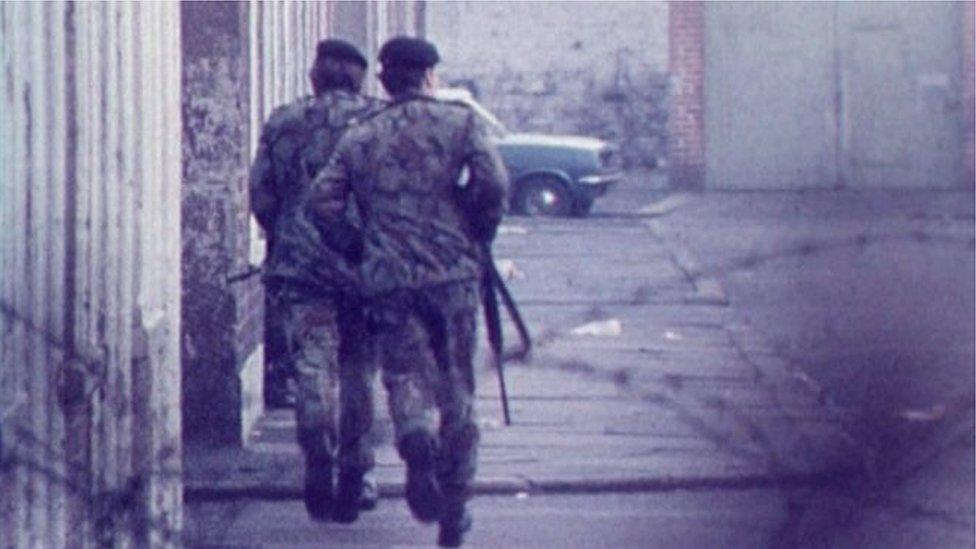
The legacy document outlines plans for dealing with Troubles-related deaths
The federation submission is strongly critical of current mechanisms for dealing with the past, including legacy inquests and investigations by the office of the Police Ombudsman.
It says the current legacy system "has been heavily biased against the state", and that legacy "has been a travesty for the rule of law, criminal justice, equality, and basic human rights".
The submission adds: "Police officers, serving and retired, their families, police widows and officers injured by terrorists (physically and psychologically), feel abandoned by the government."
'Unjust and unacceptable'
DUP leader Mrs Foster said her party believes an investigatory team with full police powers would be the "best opportunity for justice".
"The government's latest proposals are being viewed through the lens of two decades of offence and outrage felt by innocent victims, and where the definition of a victim continues to be unjust and unacceptable," she said.
"We consider the status quo to be unacceptable, with innocent victims inexplicably the only group currently not seeing some level of progress with investigations.
"New UK-wide legislation to improve the definition of a victim could transform the context and offer the best prospect of success for any new arrangements."
'Fully committed'
PSNI Assistant Chief Constable George Clarke said: "If we are to build a safe, confident and peaceful society, then we must find a way of dealing with our past and the PSNI is committed to playing our part in that process.
"Our response to the consultation is grounded in a desire to see the proposals not only successfully established; but working effectively to meet the needs of those grieved and injured during our past, as well as our society as a whole."
In its submission, the PSNI says it is "fully committed" to the proposed bodies for dealing with the past, with a number of caveats and requests for clarification.
It says the issues it highlights are "not without challenge", but "not insurmountable".
- Published31 May 2018

- Published31 May 2017
